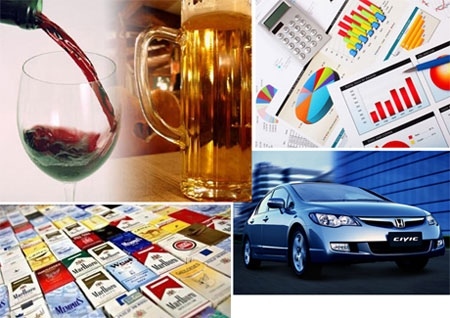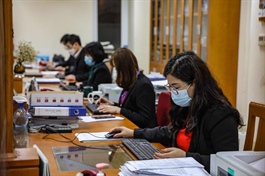Excise tax: What do experts and businesses say?
Excise tax: What do experts and businesses say?
Many people think that without a long-term roadmap, further increases of excise tax would make it difficult for companies to plan their business strategies.
On April 23, 2022, the Prime Minister issued Decision 508/QD/2022/QD-TTg approving the tax system reform strategy to 2030. To limit consumption and fulfill international commitments, the strategy stipulates the development of a tax increase adjustment roadmap on tobacco, beer and alcohol, combining proportional and absolute excise taxes.
Mr. Nguyen Van Viet, Chairman of the Vietnam Beer – Alcohol - Beverage Association, agrees that this is a correct and necessary decision.
Mr. Viet adds that today’s business environment is one thwart with difficulties, with both COVID-19 recovery and the impact of the Russia-Ukraine conflict presenting significant challenges to industry. With this in mind, the State should extend the timeframe for implementing new tax measures, to allow businesses sufficient time to recover. Indeed, implanting tax increases after businesses have stabilized their operations would benefit both Government and enterprises.
“Regarding the upward adjustment roadmap, I think it is necessary to evaluate and consider the current conditions and have a suitable roadmap. We recommend that it should be applied after 2025 when the industry will be well positioned to develop stably, and it will be appropriate to implement new policies,” suggested Mr. Viet.
|
Similarly, Mr. Le Viet Thang, Chairman of the Board of Directors of Vietnam Beer Alcohol - Beverage Technology Joint Stock Company, has stated that the increase of the excise tax is also one of the big challenges of enterprises today, as it will lead to increased product costs. Therefore, either this tax increase should be postponed, or a plan to support businesses should be formulated by the Government.
“For the most appropriate roadmap, different departments and ministries must analyze the causes and opportunities, have specific statistics on the results and achievements of the industry to determine best course of actions. This depends also on politics, economy situation, if we recover soon, we will have opportunities to increase sooner," Mr. Thang said.
In the tobacco sector, a sudden increase in tax is expected to drive consumers to the illicit trade, leading to increased consumption of illicit products which could ultimately reduce government excise revenues. According to a representative of JTI Vietnam, an enterprise in the tobacco industry, FDI companies will face difficulties if tax increases are not planned over the longer term. To effectively formulate future investment strategies, enterprises need visibility on excise tax increases that will be implemented over the next 2-3 years.
“Helping businesses to plan better will contribute to a more favorable investment environment in Vietnam. We propose that the Ministry of Finance develops a multi-year excise tax plan, providing businesses with visibility over future excise developments. Moreover, such a plan would allow the Government to better predict tax revenues over the long term and maintain market stability,” said a representative of JTI Vietnam.
According to Dr. Nguyen Van Hien, an economic expert, increases to special consumption taxes should consider the cost of products in nearby countries. Should the price of local goods rise above that of nearby countries, smuggling is also likely to increase. Dr. Nguyen Van Hieu notes that the smuggling of tobacco products into Viet Nam is typically very difficult to prevent, as the country has long land and sea borders. Furthermore, the smuggling is of a guerrilla nature and concerns small batches of products, making it difficult to control. Therefore, when increasing the excise tax on these items, the potential to further fuel smuggling must be considered carefully.
Dr. Nguyen Van Hieu also explains that to protect and grow the significant revenues that producers of tobacco products and alcoholic beverages contribute to the state budget, a transparent and moderate multi-year excise tax plan is needed, to allow these enterprises may effectively plan their operations. “The Ministry of Finance should develop a roadmap to increase excise gradually and monitor the reaction of the market. At the same time, manufacturing enterprises should participate in the process of preventing the consumption of contraband goods," he says.
|
Mr. Pham Ngoc Hung, Vice Chairman of Ho Chi Minh City Business Association: It is very reasonable for excise tax to be levied on alcohol, beer and tobacco products, but we must also have a transparent roadmap. This should for example indicate the period of the tax increase, the amount, in which year it will increase by how much, like the roadmap of social insurance, how many years to retire, and how many percent we can get when retiring. And the excise tax also needs to have a specific roadmap publicly available for 15 years or 20 years so that enterprises can develop business plans and contribute to protecting the state budget. |
























